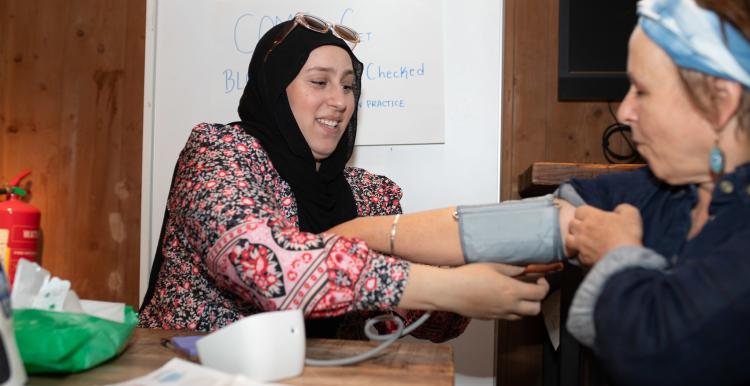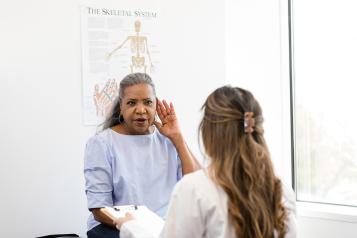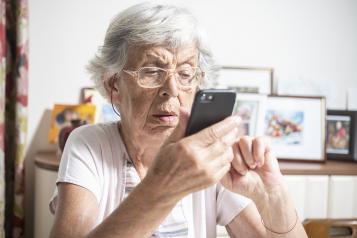If I could change just one thing about health and care, this is what it would be

Last summer we spent a week at Chapel Market (which is a street market near Angel tube station for those of you who are unfamiliar). We were offering blood pressure checks, which we find are popular with passersby and a great way of connecting with residents.
We asked people to tell us one thing that the council or health and care services could do to make things easier for them and their family.
Once our stint at Chapel Market was over we continued to ask the question at the community events we attended over the autumn and winter, and at the wellbeing sessions organised by our mental health team. We asked the question online so we could hear from people we were unable to meet in person. Now we'd like to share what we have learned.
121 people shared their stories. We were asking them to identify issues they struggled with so it's no surprise that the feedback skews toward negative experiences. Even so, one or two people felt that services were fine and insisted there was nothing that they would see changed.
76 people told us about changes they would like to see to health services. 5 spoke about social care. Others told us about difficulties related to housing (10 people), the cost of living (21 people), or something else that was having an impact on their quality of life (6 people). Here we summarise what we heard, with specific examples of feedback mixed in.
Health
People wanted easier access to GP services and were frustrated by long waiting times and difficulty reaching their practice by phone. With appointments hard to come by, limiting them to a single issue was discouraging for some. At least one resident expressed reservations about American firms buying local practices. Many people wanted more availability of face-to-face, in-person appointments.
People also wanted to see more health and wellbeing activities aimed at families and better access to physiotherapy/community health services.
"Quicker doctors appointments. It's ridiculous at the moment and as for e-consult, I don't like it, I want to phone."
"More health interventions in the community are one change that would make things better. Because it's not easy to get a GP appointment."
"My husband has some kind of allergies and insomnia (we both suffer). We would like more information about looking after ourselves, about self-care. It feels like other people need help more than us, so we don't get the support we need."
"I have been trying to access DESMONDS (the Diabetes self-management programme). They all seem to be during work time. There's nothing in the evenings or on weekends."
"Employers of a certain size, say 50 plus employees, should provide exercise for their staff - a couple of hours every week. This time should be protected and regarded in the same way as Jury service. The only way to fix the NHS is to keep people out of it."
Social care
People told us they needed more help getting around the house, quicker access to mobility aids and home adaptations, and help for single mothers.
"Provide childcare facilities for women alongside health classes. There was the odd creche facility at community centres, but when my child was younger it was hard to attend classes. If you're wondering about barriers to keeping fit then it's worth thinking about."
In N7, where I live, there are a lot of people living on their own, stuck at home - they are isolated!
Cost of Living
People told us they were struggling to keep up with their payments: rent, bills, Council Tax, shop prices, nursery costs. Wages are not going up so that makes it harder.
"Prices of electricity are very high. The cost of food is going badly. Transport has gone up. As a senior, you think there will be a discount but there is no help."
Housing
People said they wanted the council to be doing more about antisocial behaviour. There were difficulties getting council housing. We heard that housing could be of a poor standard, repairs were slow to come, and there were problems with damp and overcrowding.
"When parents separate, the mother and the children are a priority for housing, and that's right. But they need to think about the fathers too. A father needs a safe space to bring his children to."
Other issues
People said they would welcome more advice about a healthy diet and more support to overcome digital exclusion. Other concerns included pollution, public transport, and the difficulties of interacting with statutory services.
"There should be one phone number that's a single point of entry to access services. The call handler should own your enquiry and not ask you to call other numbers within the council to solve your query. Often, residents are navigating a system that can require several calls to find the right department or person. Currently, operators are only too happy to ask that you call another number they furnish and this can happen many times within the same query."
Who did we hear from and what happens next?
We're here to understand the needs, experiences, and concerns of people who use health and social care services in Islington and to speak out on their behalf.
- We know that better GP access is a priority for many people. We've shared our concerns with health commissioners and worked with local volunteers to recommend ways for practices to improve patient communication more broadly.
- Our decisions on the issues we prioritise each year in our work plan need to be informed by feedback from the community. Engagement activities like 'Just One Thing' help us to hear from as many people as possible, and from people we don't usually hear from.
- We don't tend to collect feedback on issues such as housing because we don't have statutory powers to influence decision-making (though damp and overcrowding clearly have an impact on health and wellbeing). However, our involvement in the Evidence Islington project, means we now have a forum to which we can and will bring this kind of feedback.
Equality Monitoring
Of those that provided this data:
- 14 respondents described their ethnicity as Asian/Asian British, 26 as Black/Black British, and 36 as White British. The remaining 28 people had other ethnic backgrounds.
- 1 person was aged between 18 and 24, 32 people between 25 and 49, 36 people between 50 and 64, and 37 people were aged 65 and over.
- We heard from 28 men, 71 women, and 2 people who identified as non-binary.


